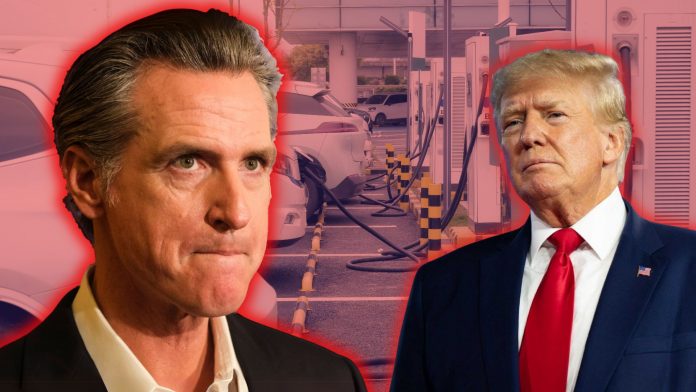California Governor Gavin Newsom is preparing for a showdown with President-elect Donald Trump over the future of the $7,500 federal electric vehicle (EV) subsidy. If the subsidy is repealed, Newsom has vowed to propose a state tax credit to replace it, reviving a program that was phased out in 2023. However, Tesla is in the crossfire, and it is likely excluded from the new proposal.
Tensions between Tesla CEO Elon Musk and California state officials have escalated over several issues, including the closure of Tesla’s Fremont factory during the pandemic and Musk’s decision to move Tesla’s headquarters to Texas in 2021. Musk has sharply criticized Newsom’s plan to exclude Tesla from state subsidies, calling it “insane,” considering Tesla is the only automaker manufacturing EVs in California.
It remains unclear how much the proposed state program will cost or whether it will include the $4,000 federal tax credit for used EVs. What is certain, however, is that California’s EV market is booming. EVs now account for 22% of the state’s vehicle sales, totaling 293,000 units through September 30, 2024. Additionally, California recently crossed a significant milestone, surpassing 2 million zero-emission vehicle (ZEV) sales, doubling since 2022.
California’s ambitious goals don’t stop there. The state’s policies mandate that by 2035, 80% of all new vehicles sold in California must be fully electric, with the remaining 20% being plug-in hybrids. Officials are hoping the Environmental Protection Agency (EPA) will approve their plan to halt gasoline-only vehicle sales by 2035 despite major criticism from automakers. However, Newsom’s ambitious goals may face significant opposition as Trump’s transition team is already working to unwind key Biden-era EV mandates and fuel-efficiency standards.
Tensions between California and the Trump administration are nothing new. Trump has previously targeted California’s right to enforce stricter emissions standards, and it’s expected that his administration will once again challenge California’s regulatory authority under the Clean Air Act. With these ongoing political and regulatory battles, the future of California’s EV market remains uncertain. As both state and federal leaders dig in their heels, the outcome will significantly influence the direction of the nation’s EV landscape.



